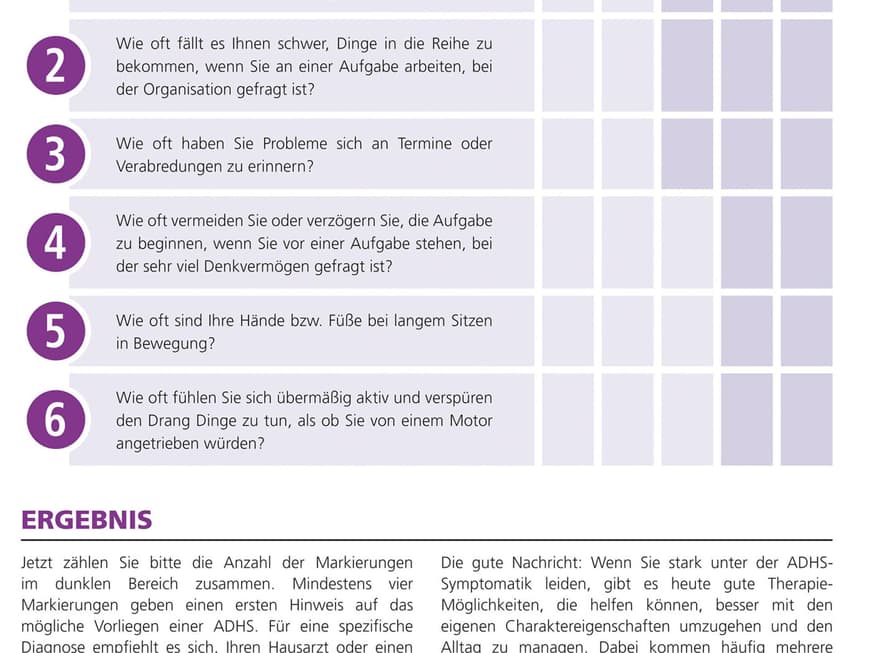How can you recognize ADHD?
It is estimated that around two million adults in Germany are affected by ADHD. It affects their everyday life, takes away their courage to face life and often leads to other mental illnesses. However, many of them do not even suspect that they are affected by attention deficit hyperactivity disorder.
Constant lack of concentration, chaos at work, forgotten appointments - this is stressful everyday life for many people. Attention is impaired, as is the ability to concentrate on one thing for long periods of time and reactions are often uncontrolled.
What consequences can ADHD have?
"It's not just a bit of restlessness," explains Dr. Imhof, "In practice, ADHD in adults is often overlaid by other psychological conditions." It is estimated that around 40% of those affected also suffer from depression and around 20% from an anxiety disorder. In around 35% of cases, ADHD is difficult to distinguish from other serious personality disorders. These people are also far more at risk of addiction.
The fact that up to 80% of those affected in childhood still suffer from the disorder as adults is undisputed among experts today. The neurotransmitter dopamine is not sufficiently present in certain regions of the brain, which leads to disturbances in the transmission of nerve impulses.
What treatment options are there for ADHD?
A structured daily routine, targeted behavioral training and psychological support can help ADHD patients. The disorder can also be treated with medication. For several years now, methylphenidate (MPH) has been available as an approved and well-studied active ingredient for adult patients that can specifically normalize the dopamine regulation disorder.
"Ifdiagnosed consistently and treated accordingly, the suffering of many affected people could be alleviated in the long term," concludes Dr. Imhof. His advice: anyone who experiences the symptoms described should consult a doctor they trust to check for possible ADHD. This could be the start of a completely new attitude to life.
Are you affected by ADHD?
Do you suspect you might have ADHD? Then take the test here.

This might also interest you:
ADHD: Triggers, symptoms and treatment
The best foods for strong nerves
Stimulating the vagus nerve: How we learn to relax again
Quick relaxation exercises to combat stress
Stress management: 5 tips to get the pressure under control









